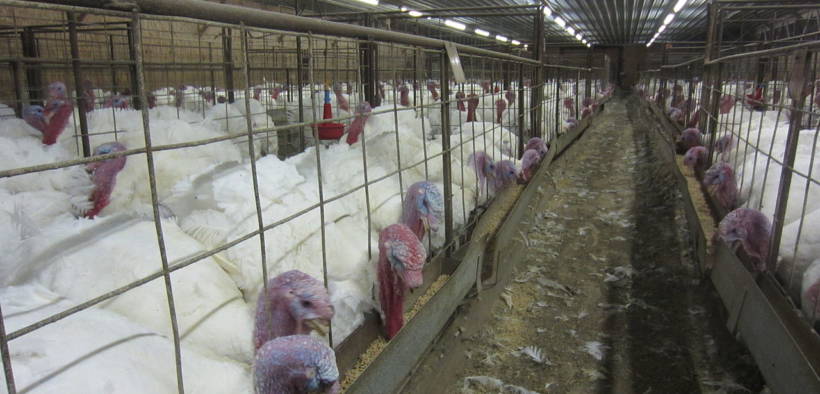Are America’s Biggest Food Companies Making Progress Toward Reducing Animal Suffering?

The Food Industry Scorecard is the result of a year-long audit of the nation’s largest food companies to see what animal welfare promises they made, kept and broke.
Like countless animal lovers, I have always considered myself as someone who deeply cares for animals. As a kid, my pet dogs, cats, chickens, pigeons and geckos were my best friends. I spent the majority of my days caring for and playing with them. My brother and I loved our chickens very much. We would put them in our Tonka trucks and race them down the driveway. I made clothes for my favorite dog and entered her into community dog show contests.
As a child, I never saw a conflict between my love for my pets and the food [meat] I ate. In fact, the best night of the week was when we ate frozen dinners on TV trays while watching shows like “Family Ties” or “Eight Is Enough.” My dish of choice was veal parmigiana with a side of mashed potatoes and a crispy little brownie.
It wasn’t until I graduated from college that I began to understand the source behind the food on my plate. I was volunteering at a local dog rescue when it occurred to me that while I’m grateful for the opportunity to help reduce the number of dogs euthanized due to overpopulation, my personal talents—and business experience—could be more impactful while working with food companies to improve their animal welfare policies. So, I turned my focus to helping nearly 10 billion farm animals killed in our food system each year.
Having a smart strategy to ensure impactful change matters to me, most of all because the treatment of animals in factory farms is abysmal. Chickens used for meat are bred to grow so fast they have heart attacks and collapse under the weight of their own breasts. Egg-laying chickens are crammed into cages so tightly they cannot spread their wings. During their four-month pregnancies, the majority of female pigs are kept in individual stalls or gestation crates so small they cannot turn around.
I have been fortunate to turn my passion for speaking out for these farm animals into my career. I now work with the largest food service companies, restaurants and consumer packaged goods manufacturers in the country to uphold their commitments on eliminating the above-mentioned abuses faced by farm animals almost on a daily basis and help diversify proteins to include more plants and less meat, eggs and dairy. While it is meaningful for individuals to make changes in their personal eating habits, we have found working with companies to be one of the most effective and efficient ways to usher in a new era of food. When companies like McDonald’s, which serve billions of meals per year, make a commitment to shift from conventional eggs to cage-free eggs, millions of chickens’ lives are positively impacted.
My colleagues and I at the Humane Society of the United States have worked with virtually every major food company to help them make commitments to eliminate some or all of these cruel practices from their supply chains. That’s just the first step, though. We need to now know that the companies are actually following through with their word.
In 2019, we surveyed 95 companies with our Food Industry Scorecard. Specifically, we audited how strong the language surrounding their commitments is, as well as their progress in shifting to cage-free eggs, gestation-crate-free pork, chicken from better treated “broiler” chickens, preparation for legal compliance to confinement laws, and offering plant-based proteins.
The question is, are the companies following through with their promises? We’ve found that some of them are trying diligently to improve the lives of animals used in their supply chain; others are lagging behind or have backtracked from their pledges all together. For example, Sodexo is more than 60 percent compliant toward its goal of using only cage-free eggs and is actively working to increase its percentage of plant-based entrees. On the other hand, Marriott (and other companies) have repeatedly failed to keep their animal welfare promises, and Subway reports no progress made toward its 2012 promise to “rapidly eliminate” cruel gestation crates from its pork supply.
These results serve as a baseline for companies to understand where they stand on the issues that matter most—reducing or eliminating extreme confinement from their supply chain—and provide consumers data about how companies are (or aren’t) improving.
It is only when companies implement their welfare commitments that animals will be able to live better lives. I’m thankful for the companies working to reduce suffering and will remain diligent to hold failing companies accountable. Working together, we can create a future where all animals—whether dogs or chickens—suffer less and people are able to enjoy more delicious plant-based foods.
This article was produced by Earth | Food | Life, a project of the Independent Media Institute.







